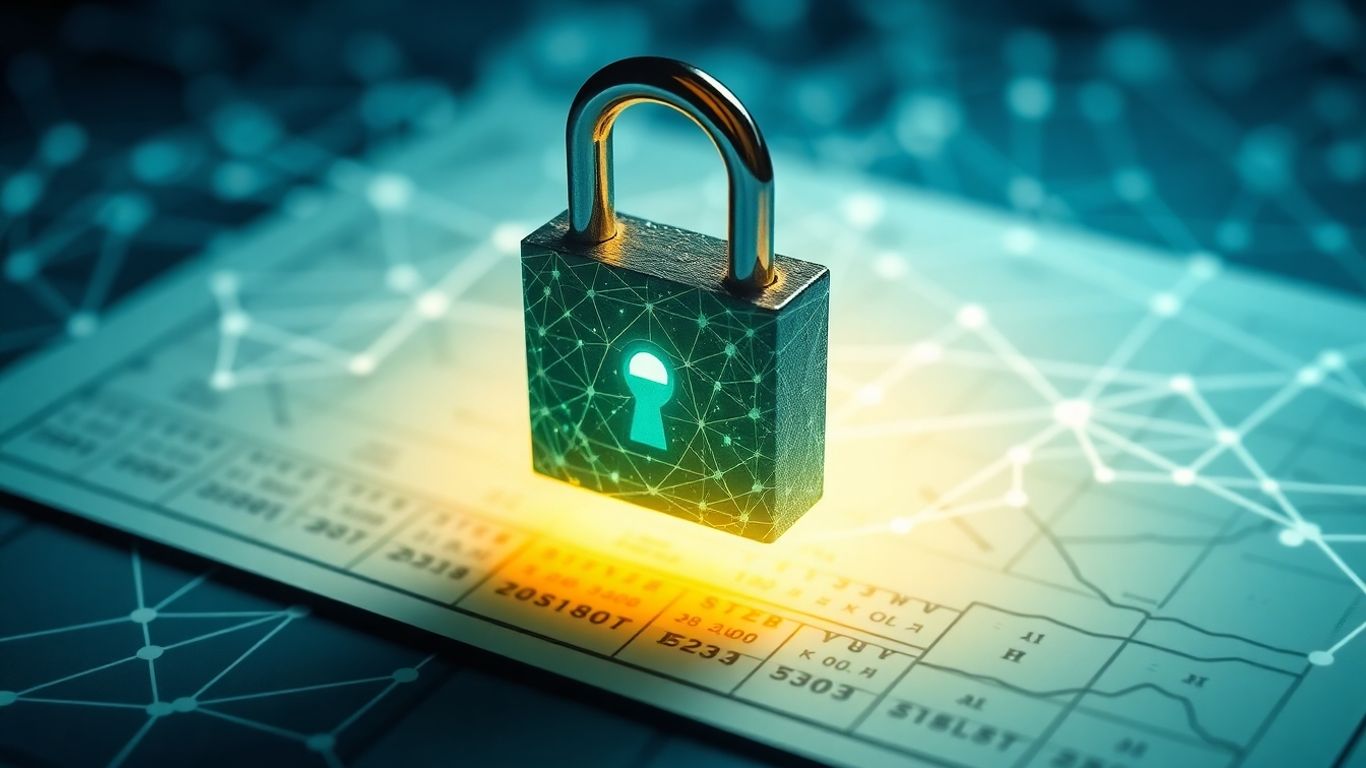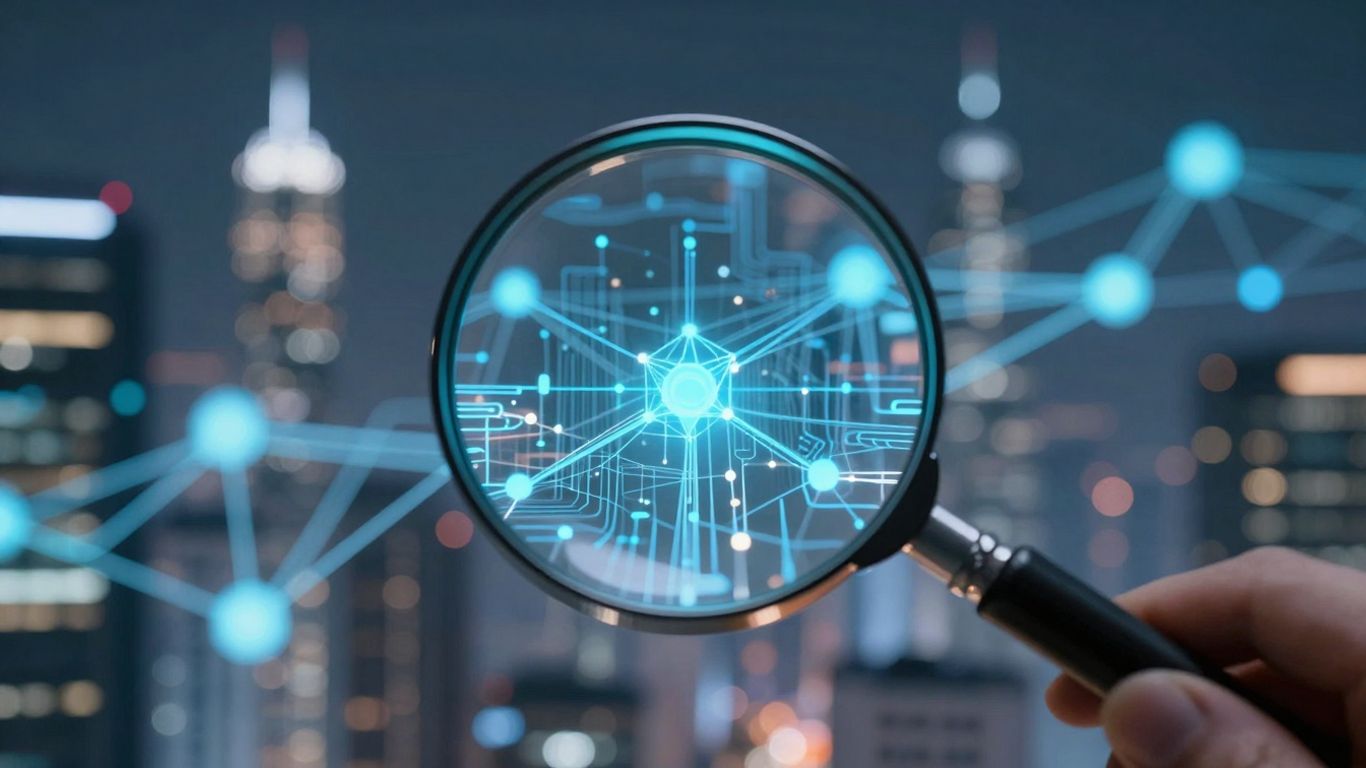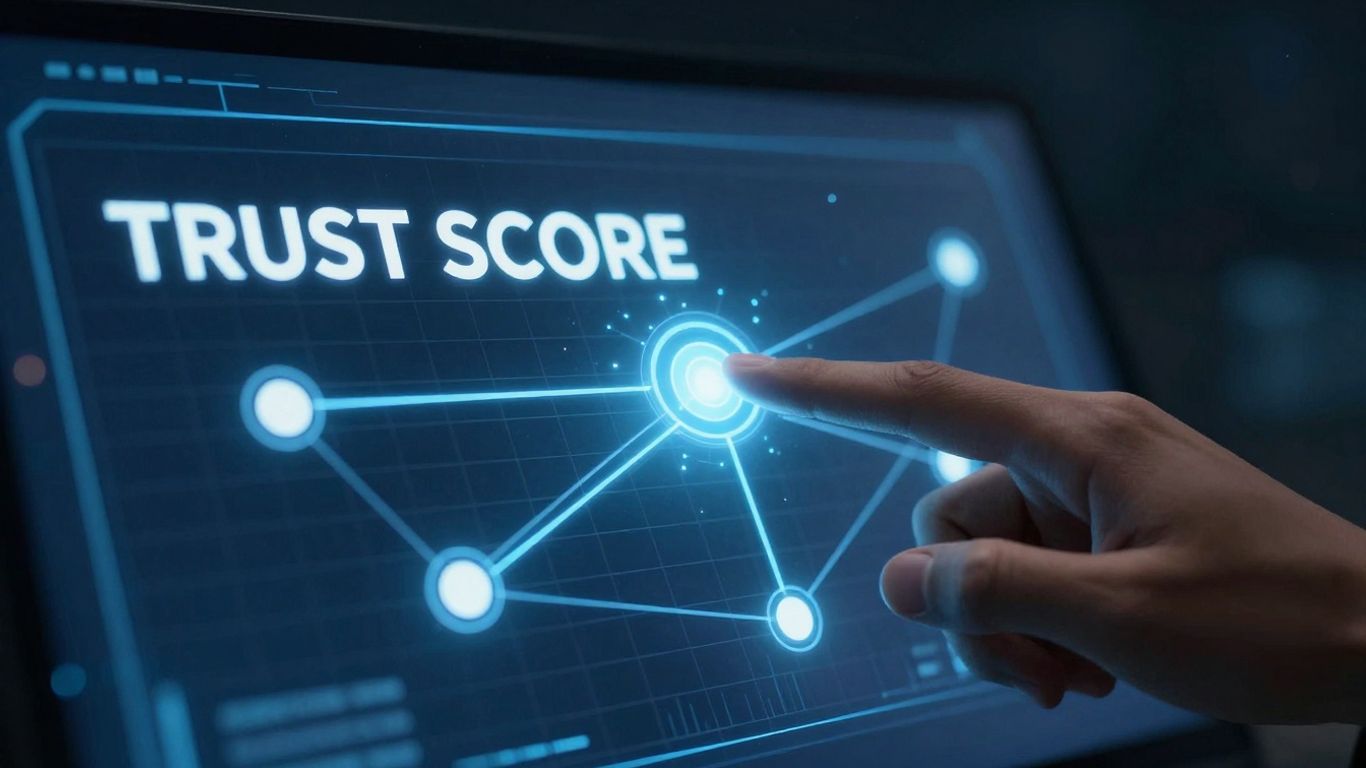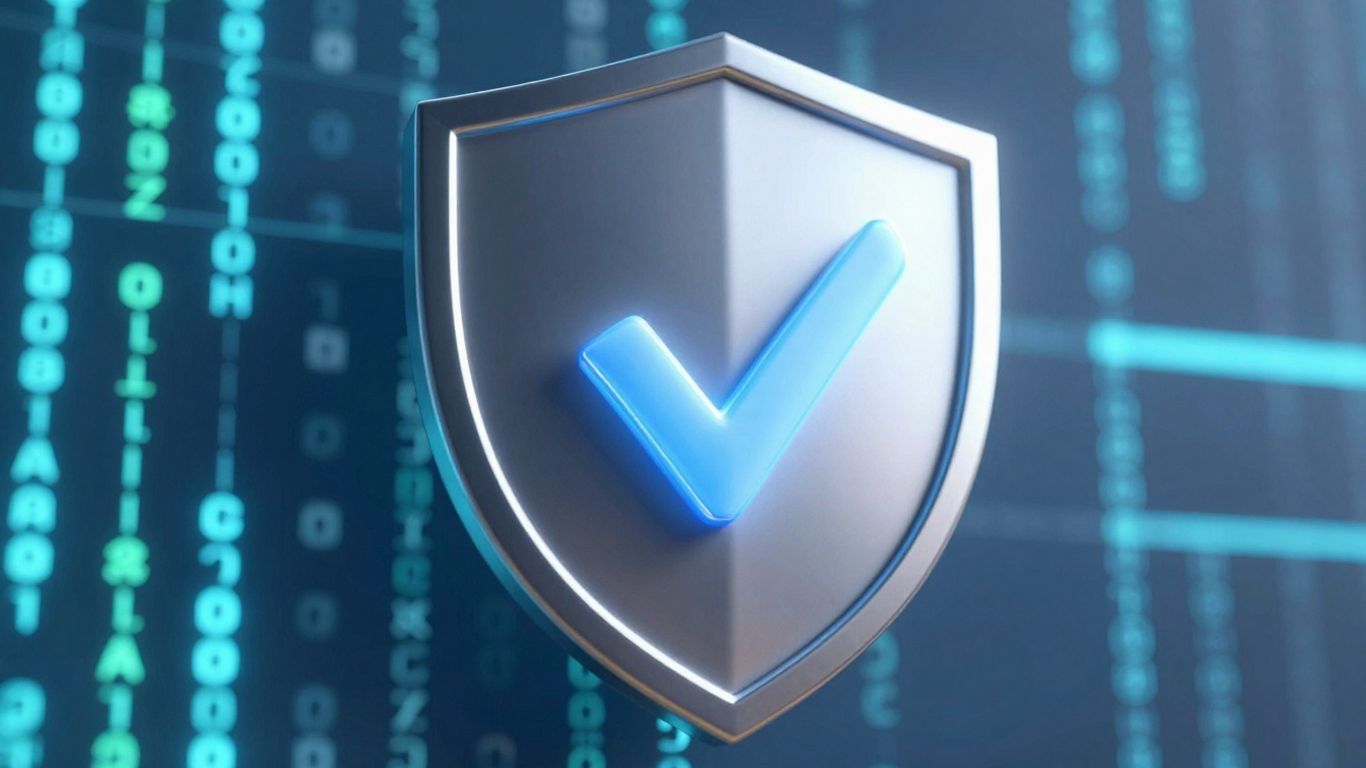[ newsletter ]
Stay ahead of Web3 threats—subscribe to our newsletter for the latest in blockchain security insights and updates.
Thank you! Your submission has been received!
Oops! Something went wrong. Please try again.
Explore the future of finance with blockchain and audit. Discover how these technologies enhance security, transparency, and efficiency in financial record-keeping.





The world of finance is changing, and blockchain is a big reason why. It’s not just about digital money anymore; this technology is actually changing how we check financial records and make sure everything is on the level. Think of blockchain as a digital ledger, like a shared notebook, where every transaction is recorded. Once a transaction is added, it’s pretty much set in stone – you can’t go back and alter it. This makes it a lot harder for anyone to mess with the books or commit fraud. This article is all about understanding the big picture of blockchain auditing and what it means for auditors today and tomorrow. Let's figure out how to get ahead of the curve.
So, blockchain in auditing. It's a hot topic, and for good reason. Think about it: our financial records have always been a bit of a mess, right? Lots of paper, lots of chances for mistakes or, let's be honest, some sneaky changes. But this new tech, blockchain, it's like a super secure digital ledger. It’s changing how we keep track of money and how we check if everything is above board. We're going to look at how this whole blockchain and audit thing works and why it matters for everyone involved in finance.
Blockchain makes financial records solid, meaning they can't be easily changed after they're put in. This makes things way more honest. Automating tasks with blockchain means less manual work, saving time and money for companies and auditors. Auditors get a clearer, real-time view of financial data, making the checking process smoother and more accurate. The way we audit is changing, with more transparency and easier ways to track transactions from start to finish. While blockchain helps a lot with the nuts and bolts, human auditors are still needed for their judgment and analysis.
Because blockchain records are unchangeable and shared, you can follow a transaction from start to finish. It’s like having a perfect history book for every single financial movement. This makes it much simpler to track where money or data has gone, spot any unusual activity, and just generally understand the flow of things. For auditors, this means less time spent digging through old papers and more time actually analyzing what the data tells us. It’s a huge step up in making sure everything is handled properly.
The core idea is that by using blockchain, we get a level of certainty about transaction history that traditional systems just can't match.
This unchangeable nature of blockchain records is a major win for preventing fraud. If a record can’t be tampered with, it’s much harder to hide any dodgy dealings. Auditors can rely on the integrity of the data, knowing it hasn’t been secretly altered. This builds a lot more trust in the financial information being reviewed.
Blockchain creates records that, once written, can't be changed or deleted. Imagine a transaction happening – it gets recorded, verified by a network, and then it's there forever, linked to everything that came before it. This makes financial data incredibly secure and trustworthy. No more worrying about someone secretly altering a number to hide something. It’s a fundamental shift in how we think about data integrity.
Blockchain can also make it easier to meet regulatory requirements and verify information. Because the data is so clear and traceable, auditors can often complete checks more quickly and efficiently. This means audits can be done faster and potentially with fewer resources, while still maintaining a high level of accuracy and assurance. It’s about making the whole process smoother and more reliable.
Think about how we've always done accounting. It's been a lot of manual work, right? Lots of paper, lots of different systems that don't always talk to each other. Well, blockchain is shaking all of that up. It's like moving from a bunch of scattered notes to one super-organized, unchangeable notebook that everyone can see and trust. Blockchain creates records that, once written, can't be changed or deleted. Imagine a transaction happening – it gets recorded, verified by a network, and then it's there forever, linked to everything that came before it. This makes financial data incredibly secure and trustworthy. No more worrying about someone secretly altering a number to hide something. This is a fundamental shift in how we think about data integrity.
Because the records are so solid and transparent, a lot of the old, tedious work can be automated. Think about things like reconciliations or checking if everything adds up. Smart contracts, which are basically agreements written in code, can handle a lot of these tasks automatically. This means fewer errors, less manual effort, and ultimately, lower costs for businesses. It’s about making things run smoother and faster.
Here's a quick look at how blockchain improves things:
Traditional accounting often relies on centralized databases, which can be points of failure or manipulation. Blockchain, by its very nature, is decentralized. This means that the ledger is distributed across many computers, making it incredibly difficult for any single entity to alter or control the data. When everyone involved has access to the same, verified record, it naturally leads to greater accountability. There's nowhere to hide when the books are open and unchangeable for all authorized parties to see. This shared truth builds confidence and simplifies the entire verification process for everyone involved.
The shift to blockchain in auditing isn't just about new technology; it's about fundamentally rethinking how we establish and maintain confidence in financial reporting. It moves us towards a system where verifiable truth is built into the process itself, rather than being something we have to painstakingly uncover.
It feels like just yesterday we were talking about blockchain as this niche thing for Bitcoin, right? But now, it's really changing how we think about accounting and auditing. Traditional methods, with all their paperwork and manual checks, are starting to look pretty old-fashioned. Blockchain offers this whole new way of doing things, a decentralized system that makes financial records way more solid.
Remember double-entry accounting? It's been the standard for ages. Blockchain is pushing us towards something called triple-entry accounting. Basically, it adds a third, cryptographically secured entry to every transaction. This isn't just a minor tweak; it means that every transaction is automatically verified and recorded on a shared ledger. Think about it: instead of just debit and credit, you have a third entry that confirms the transaction across multiple parties' ledgers simultaneously. This makes things incredibly transparent and cuts down on a lot of the back-and-forth reconciliation that auditors usually have to do.
What's really interesting is how blockchain plays with other new tech, especially Artificial Intelligence (AI). When you combine blockchain's secure, verifiable data with AI's analytical power, you get some serious audit upgrades. AI can sift through the massive amounts of data on a blockchain much faster than any human could. It can spot patterns, anomalies, or potential fraud that might otherwise be missed. This partnership means auditors can spend less time on tedious data collection and more time on the really complex stuff, like strategic analysis and risk assessment.
While we often talk about blockchain in terms of financial transactions, its applications are spreading. We're seeing it used for tracking supply chains, managing digital identities, and even voting systems. In auditing, this means auditors might need to look beyond just the numbers. They might be asked to verify the integrity of data in a supply chain or ensure that digital records are authentic. This broadens the scope of what an audit entails and requires auditors to develop new skill sets to handle these diverse data sources. It's a big shift from just checking ledgers to verifying the entire lifecycle of information.
The move towards blockchain in auditing isn't just about making things faster; it's about fundamentally changing the nature of trust and verification in financial reporting. It's a move towards a system where data integrity is built-in, not just checked after the fact.

The world of auditing is changing, and fast. New tech like blockchain is shaking things up, making old ways of doing things feel a bit… well, old. We need to get smart about how we check the books and make sure everything is on the up and up. This section is all about understanding the big picture of blockchain auditing and what it means for auditors today and tomorrow. Let's figure out how to get ahead of the curve.
Auditors today need to get friendly with data. This means more than just looking at spreadsheets. You'll be working with big datasets, finding patterns, and spotting things that seem off. Knowing how to use data analysis tools is a must. It helps you dig deeper into transactions and see what's really going on. The ability to interpret complex data sets and identify anomalies is becoming as important as traditional accounting principles. Here's a quick rundown of what to focus on:
Let's be honest, most auditors and finance professionals didn't learn about blockchain in school. There's a need for training and education so people understand how this technology works and how to use it effectively in their jobs. Without the right skills, adopting blockchain becomes a lot harder. It's not just about understanding the tech itself, but also how to apply it to audit procedures and interpret the data it provides. Staying current is key to providing good service in this digital age, and there are many resources on blockchain accounting. Here’s how to keep your skills sharp:
Even with all this tech, there's still a huge need for human insight. Blockchain provides data, but it doesn't inherently understand context or intent. Auditors will still need to apply their professional judgment to interpret the data, assess the implications of findings, and make decisions about the fairness of financial statements. For example, a transaction might be perfectly recorded on the blockchain, but an auditor's judgment is needed to determine if it represents a genuine business activity or something more questionable. The shift means auditors will need to be comfortable with technology, but more importantly, they'll need to be sharp critical thinkers. The ability to ask the right questions and understand the 'why' behind the data will become even more important than ever before.
Auditors need to be ready to learn, adapt, and use these new tools to do their jobs right. It's about being smart with data, keeping digital stuff safe, and always remembering to do the right thing. By jumping on board with these changes, auditors can really help businesses do better in this digital age.

So, what does all this blockchain stuff mean for the folks who actually do the auditing? It's a big question, and honestly, it's not about robots taking over. Think of it more like getting a super-powered assistant. Blockchain isn't here to replace auditors; it's here to change how they work, making their jobs more about analysis and less about tedious checking.
Instead of spending days sifting through paper trails or endless spreadsheets, auditors will have access to a shared, unchangeable ledger. This means a lot of the grunt work, like verifying individual transactions or checking for simple errors, can be handled by the technology itself. This frees up auditors to focus on the bigger picture. They can spend more time understanding the business, identifying risks that aren't just about numbers, and providing strategic advice.
With blockchain handling the data integrity and basic verification, auditors can shift their attention to more complex tasks. This includes:
Even with all this tech, there's still a huge need for human insight. Blockchain provides data, but it doesn't inherently understand context or intent. Auditors will still need to apply their professional judgment to interpret the data, assess the implications of findings, and make decisions about the fairness of financial statements. For example, a transaction might be perfectly recorded on the blockchain, but an auditor's judgment is needed to determine if it represents a genuine business activity or something more questionable. The shift means auditors will need to be comfortable with technology, but more importantly, they'll need to be sharp critical thinkers. The ability to ask the right questions and understand the 'why' behind the data will become even more important than ever before.
The world of auditing is changing, and fast. New tech like blockchain is shaking things up, making old ways of doing things feel a bit… well, old. We need to get smart about how we check the books and make sure everything is on the up and up. Integrating blockchain isn't just a trend; it's about making sure audit practices stay relevant and effective in the years to come. It's about getting ahead of the curve, not just reacting to it. This means auditors need to be ready for whatever comes next, and blockchain is a big part of that. It's a shift from just looking backward at what happened to also looking forward at how to prevent issues before they even start. The core idea is that by using blockchain, we get a level of certainty about transaction history that traditional systems just can't match. This shift means auditors can focus more on strategic analysis rather than just verifying the basic accuracy of records.
Blockchain technology offers a way to create a shared, unchangeable record of transactions. Think of it like a digital ledger that everyone involved can see, but no single person can alter. Once a transaction is recorded, it's there permanently. This makes it much harder for fraud to happen because any attempt to change a record would be immediately obvious to everyone on the network. For auditors, this means a higher level of confidence in the data they are reviewing. Instead of spending a lot of time trying to verify the authenticity of each entry, auditors can spend more time on analyzing the business implications of the transactions.
Information asymmetry happens when one party in a transaction has more or better information than the other. Blockchain can help level the playing field. By providing a transparent and accessible record of transactions, all stakeholders – from investors to regulators – can have a clearer view of what's going on. This reduces the risk of misunderstandings and builds greater confidence in the financial reporting. It means fewer surprises and a more informed decision-making process for everyone involved.
We're already seeing companies put blockchain to work in auditing. For instance, some firms are using it to track supply chains, making sure goods are sourced ethically and that all the steps are properly recorded. Others are using it for verifying financial statements, where the blockchain acts as an independent auditor of the data itself. Smart contracts, which are self-executing agreements written in code, are also being used to automate compliance checks. When certain conditions are met, the contract executes automatically, and this execution is recorded on the blockchain, providing an auditable trail.
The integration of blockchain into audit practices is not just about adopting new technology; it's about fundamentally rethinking how we establish trust and verify information in the digital age. It moves the focus from retrospective verification to proactive assurance, allowing auditors to provide more forward-looking insights.
So, we've seen how blockchain is really changing the game for finance and auditing. It's not just some far-off idea anymore; it's here, making things more secure and honest. For auditors, this means less time staring at spreadsheets and more time actually figuring out what the numbers mean. Sure, there are still some bumps in the road, like making sure everything can handle the load and figuring out all the rules. But the move towards clearer, safer financial records is definitely happening. It'll take some getting used to, and people will need to learn new tricks, but the future of auditing looks a lot more straightforward and trustworthy because of this tech. It’s really about building a stronger financial world for everyone.
Think of blockchain like a super secure digital notebook that lots of people share. Every time something like a payment or sale happens, it gets written down. Once it's written, it's almost impossible to change or erase, making it really honest and safe for keeping track of money.
Because blockchain records can't be changed after they're made, they are very reliable. Everyone involved can see the same information, and it's hard for anyone to cheat or make secret changes. This makes the whole financial system more dependable.
Not really! Blockchain helps auditors by doing a lot of the boring, repetitive work, like checking lots of numbers. This means auditors can spend more time thinking deeply about the business, finding tricky problems, and giving advice, instead of just counting things.
Yes! Instead of waiting for reports, auditors can look at the financial data as it's happening. Since the blockchain already checks and shares the information, auditors can trust the numbers they see right away, making their job much faster.
Sometimes, blockchain systems can get slow if too many people use them at once. Also, the rules for using blockchain are still new and changing, which can be confusing. Plus, not everyone knows how to use this new technology yet, so people need to learn new skills.
Blockchain helps make things fairer by giving everyone access to the same, up-to-date financial information. This transparency means fewer people can hide important details, leading to more trust and accountability for all parties.


